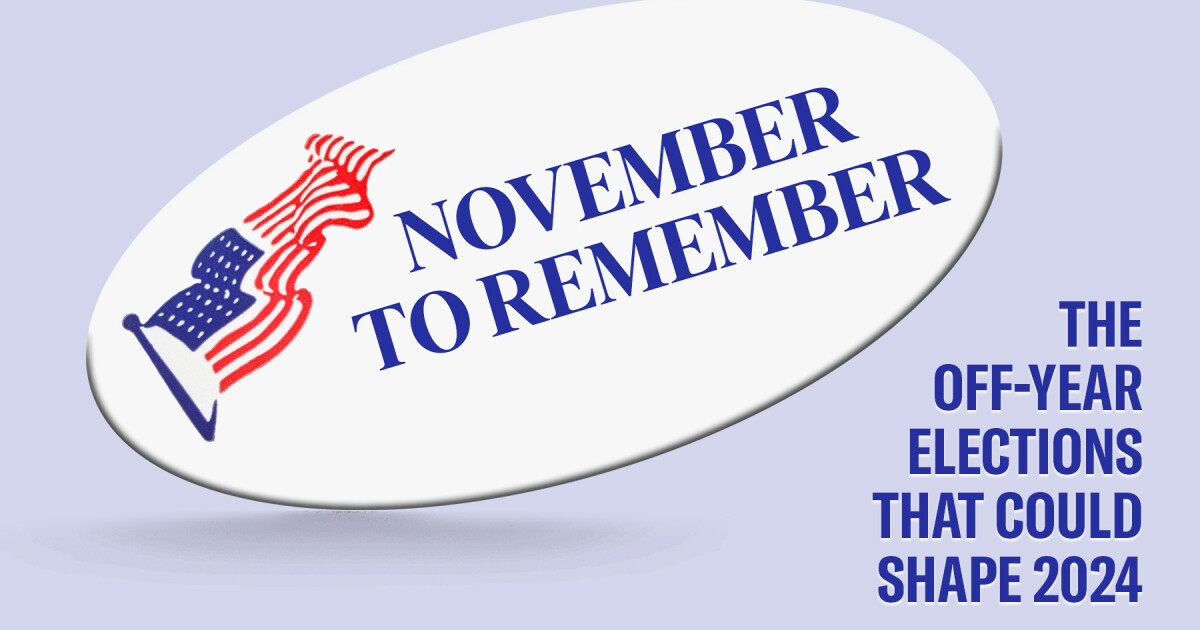

The 2023 elections may not have the fireworks of 2024, but there is still plenty up for grabs. In this “off-year,” most of which takes place on Nov. 7, Virginia will be keenly watched, particularly by followers of Gov. Glenn Youngkin, and whether he can springboard Republican success into national aspirations. Meanwhile, the governor’s mansion is up for grabs in Kentucky and Mississippi. New Jersey’s Republicans believe they have a real shot at turning the state red in legislative elections, while there are also fierce mayoral and district attorney battles throughout the United States. Voters will also decide several fascinating referendums, particularly in Ohio, Maine, and Texas. This Washington Examiner series, November to Remember, will dive into all of these and more over the following two weeks. Part Three will deal with ranked choice voting in Salt Lake City’s mayoral election.
Voters in Salt Lake City are set to participate in their first-ever mayoral race that will rely upon ranked choice voting to choose the next leader of the capital city, marking a shift for the Beehive State as other cities seek to follow suit in future elections.
At least 10 cities in Utah will operate local races through ranked choice voting in November, which would require candidates to receive more than 50% of the vote before being declared the winner. The shift comes roughly five years after the state passed a bill to establish a ranked choice pilot program allowing local municipalities to use the voting system in their elections if they so choose.
NOVEMBER TO REMEMBER: VIRGINIA ELECTIONS COULD LAUNCH YOUNGKIN NATIONAL RUN
Ranked choice voting, also known as instant runoff voting, allows voters to rank candidates by preference, with a winner not being declared until they receive a majority of the vote. (Current law in Utah declares the winner of the plurality vote as the victor regardless if it’s below 50%.)
During the first round, votes are tallied for each candidate based on voters’ first choice. If no candidate receives 50% of the vote, the candidate with the lowest number of votes is eliminated.
Then, every ballot that listed the eliminated candidate as their top choice will then be redistributed based on their second choices — and the process is repeated until a candidate surpasses the majority threshold.
Advocates have pushed for ranked choice voting in Utah elections for years, arguing the process makes it more fair and representative of the electorate.
“The key differences are the winner has to have a majority,” said Kelleen Potter, executive director of Ranked Choice Voting Utah. “[Voters] don’t have to strategize and say, ‘I want to vote for that person, but the polls say that they’re not in the lead. I don’t know if I’m wasting my vote.’ They’re able to vote for whoever they want. Then if when the first round is counted, their candidate that they chose first was the lowest vote-getter and that person is eliminated, then their second choice vote will be applied in the second round of counting.”
Ranked choice voting is also a cheaper method of running elections, according to the group, as it allows cities to hold just one election in November compared to hosting a primary election in the summer followed by a general election later in the fall.
Advocates also point to how ranked choice voting changes the tone of the campaign trail, noting it forces candidates to steer away from attacking their opponents to use their time instead appealing to all voters — even those that aren’t supporting them as their first choice.
As the former mayor of Heber City in Utah, Potter said the plurality voting system forces candidates to be “incentivized to make people not like the other people to make people only vote for you.”
“If I were out campaigning, and I saw a sign at someone’s house for my opponent, I would never talk to them,” Potter said. “I would just skip right on by. But with ranked choice voting, candidates reach out, and they talk to other people, and they hear their perspectives, and they try to find solutions that are best for the whole community … So it increases those conversations that candidates have with voters [and] voters meet different candidates.”
Other candidates echoed similar sentiments, arguing it forces more positive campaign tactics rather than partisan attacks.
“It created different dynamics with voters where you can actually try to break some of those barriers and say, ‘I’m also here to make a positive impact in my community,’” said Salt Lake City Council Member Alejandro Puy, who was first elected in 2021 through a ranked choice voting election. “We need to start talking to each other. We need to find common ground, and we need to realize that we’re sort of pulling very similar directions.”
There are three candidates running for mayor in the Salt Lake City election, including Democratic incumbent Erin Mendenhall who is vying for a second term. She will face former Mayor Ross Anderson, who previously held the seat from 2000 to 2008, as well as community activist Michael Valentine.
Mendenhall and Anderson are considered the frontrunners in the race, meaning voters who are backing Valentine could determine the election based on who earns more second-choice support. Mail-in ballots will be sent out to voters starting on Oct. 31, with the general election being held on Nov. 21.
More than half the states in the country are currently considering legislation that would advance ranked choice voting, with another five states already passing bills allowing municipalities to use the method in their local elections.
In Utah, lawmakers introduced a bill that would provide for a preferential method in primary elections for up to five candidates, with the top two candidates automatically being entered into a runoff if no one secures more than half the vote. However, that bill did not make much headway during the state’s legislative session.
Still, the Salt Lake City Council voted earlier this year to use ranked choice voting in its own municipal election in 2023, paving the way for the capital city to elect its new leader through that method. At least nine other cities in Utah are expected to use ranked choice in their November elections, the most of any other state in the country, according to FairVote.org.
CLICK HERE TO READ MORE FROM THE WASHINGTON EXAMINER
And election officials are hoping that’s just the beginning.
“We’re hearing more and more about people that like it and want to use it,” Potter said. “The young people tend to quickly embrace it and really like ranked choice voting. We’re seeing evidence of a movement toward wanting to use it in more cities and ultimately, possibly, in partisan primary elections.”





